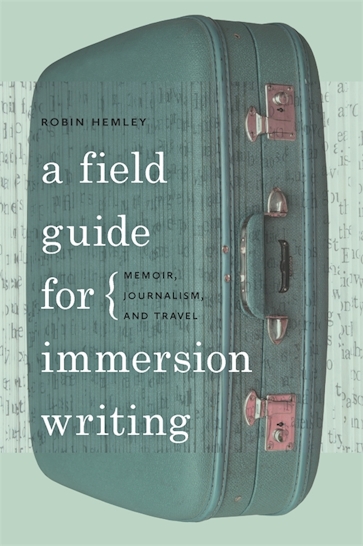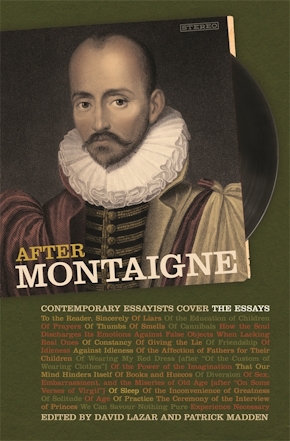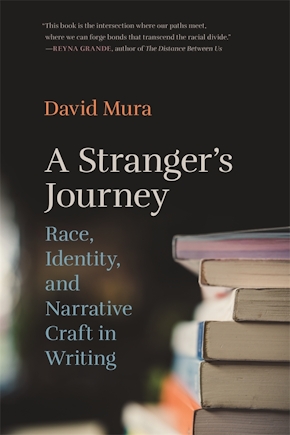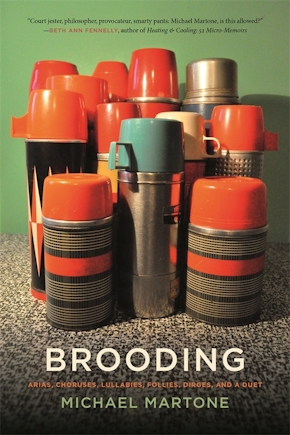A Field Guide for Immersion Writing
Memoir, Journalism, and Travel
Title Details
Pages: 192
Trim size: 6.000in x 9.000in
Formats
Paperback
Pub Date: 03/01/2012
ISBN: 9-780-8203-4255-9
List Price: $25.95
Hardcover
Pub Date: 03/01/2012
ISBN: 9-780-8203-3850-7
List Price: $120.95
eBook
Pub Date: 03/01/2012
ISBN: 9-780-8203-4373-0
List Price: $25.95
Subsidies and Partnerships
Published with the generous support of Friends Fund
Related Subjects
LANGUAGE ARTS & DISCIPLINES / Composition & Creative Writing
A Field Guide for Immersion Writing
Memoir, Journalism, and Travel
Skip to
- Description
- Reviews
For centuries writers have used participatory experience as a lens through which to better see the world at large and as a means of exploring the self. Considering various types of participatory writing as different strains of one style—immersion writing—Robin Hemley offers new perspectives and practical advice for writers of this nonfiction genre.
Immersion writing can be broken down into the broad categories of travel writing, immersion memoir, and immersion journalism. Using the work of such authors as Barbara Ehrenreich, Hunter S. Thompson, Ted Conover, A. J. Jacobs, Nellie Bly, Julio Cortazar, and James Agee, Hemley examines these three major types of immersion writing and further identifies the subcategories of the quest, the experiment, the investigation, the infiltration, and the reenactment. Included in the book are helpful exercises, models for immersion writing, and a chapter on one of the most fraught subjects for nonfiction writers—the ethics and legalities of writing about other people.
A Field Guide for Immersion Writing recalibrates and redefines the way writers approach their relationship to their subjects. Suitable for beginners and advanced writers, the book provides an enlightening, provocative, and often amusing look at the ways in which nonfiction writers engage with the world around them.
A Friends Fund Publication.
Hemley constructs a vocabulary and taxonomy for the immersion genre and makes a compelling argument for why these books matter, beyond the gimmickry, and why these stories hit home.
—Dinty W. Moore, author of Between Panic and Desire
A Field Guide for Immersion Writing is indispensable. In it, Robin Hemley is very funny but serious all the while. He explains and defines and prompts and reports with great clarity, teaching and informing and urging as he entertains. The quotations and examples from accomplished writers are generous and just plain great, many of them from essays and articles and books I’ve missed, with lessons in the most unexpected places. ‘A good book is always about more than one thing,’ Robin says, and the Field Guide is a book about life as much as it’s about writing. I mean, it’s that important, whether you plan to write or not.
—Bill Roorbach, author of Writing Life Stories and Contemporary Creative Nonfiction
This ‘field guide’ is exactly that: lessons for writers wishing to practice these forms. It brings principles of ethnographic methodologies into focus for writers not schooled in introductory anthropology. It is also an entertaining survey of contemporary writing. Hemley’s categorical approach serves to highlight similarities and (sometimes subtle) differences among these forms and the practices that create them.
—Choice
Robin Hemley has written an excellent book on immersion writing. . . . He writes with humour and passion and injects himself into the prose, thus making for a great example of what he is describing. . . . There are many writing books and sometimes it is difficult to know which, if any, are useful. This one is because it has a different focus, gives numerous fine examples and is written with verve and wit.
—Sue Bond, M/C Reviews



